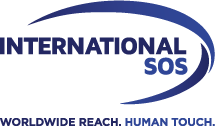New oral drug identified for the treatment of a neglected tropical disease
Australia
The first study to test an oral antimicrobial treatment for yaws, a neglected tropical disease that was once almost eradicated but has resurged in poor rural areas, has found an oral single-dose of azithromycin is effective.
The study, published today in The Lancet online, was conducted at Lihir Medical Centre in Papua New Guinea in collaboration with the Centre for International Health Research of Barcelona (CRESIB). International SOS and Newcrest Mining Ltd funded the trial under their plan for sustainability and development on Lihir Island.
The researchers used a non-inferiority, randomized trial with 250 children aged between 6 months and 15 years to assess the efficacy of a single-dose azithromycin when compared to the conventional treatment of penicillin in inducing serological cure at six months and healing skin lesions. The results found the efficacy of oral azithromycin against yaws was 96% after 6 months of treatment compared to 93% efficacy of injectable benzathine-penicillin.
While injectable penicillin is the currently recommended regimen, it has several drawbacks: the need for injection equipment and medically trained people which may be scarce in developing countries; injection site side effects and allergic reactions. Oral Azithromycin, which is currently used in the elimination of blinding trachoma, overcomes these disadvantages and has a similar safety profile with the standard treatment.
“The results of this trial represent an important step forward in the control of yaws and have the potential to finally eradicate this forgotten disease that affects millions around the world,” said Dr Oriol Mitjà, an infectious disease specialist and principal author of the study.
Dr David Mabey, Professor of the London School of Hygiene & Tropical Medicine said: “This is perhaps the most important publication on yaws in the past 50 years, and could facilitate the elimination of this ancient scourge.”
Yaws is a chronic infection, similar to syphilis, which primarily affects the skin and bones of children, and in the long term it can lead to severe deforming bone lesions. About 75% of people affected by yaws are aged under 15. Yaws is transmitted mainly through direct skin contact with an infected person.
A single skin lesion develops at the point of entry of the bacterium after 2–4 weeks and without treatment, multiple lesions appear all over the body.
In 1952 WHO led a global program targeting 50 million people and almost eradicated yaws. Over time as programs were dismantled the disease resurged. Prevalence today is unknown because there is no official notification of the disease in many countries since 1990, when about 2.5 million people were thought to have the disease. The disease is now resurgent in poor communities of Africa, Asia and South-America.
Yaws mainly affects populations living in overcrowded conditions with poor water supply, personal hygiene and lack of sanitation. Humans are the only source of infection and therefore treating people with clinical yaws and those with sub-clinical infection (contacts) interrupts transmission of the disease.
Dr Dick Hooper, Medical Director at International SOS Australasia, said the discovery demonstrates how medical clinics operating in remote environments can contribute to clinical research with global impacts.
The next step is to attempt elimination of the disease through mass drug administration programs. Should elimination be effective, a new worldwide eradication campaign under the leadership of WHO could be considered.
The funding model of this research demonstrates how foreign companies operating in countries like PNG can contribute to improving the health and wellbeing of locals via community development initiatives.
For further information please contact:
Lihir Medical Centre, Oriol Mitja (tel. 0034 619741277 [Spain] / 00675 9867180 [PNG])
Lihir Medical Centre, Russell Hays (00675 9867180 [PNG])
About the Center for International Health Research at Hospital Clinic of the University of Barcelona (CRESIB)
CRESIB is a new global health institute based at Hospital Clinic of the University of Barcelona, which is the leading Spanish biomedical research center. Research into poverty related diseases and building research capacity in Africa are two cornerstones of its mission. The center, with core funding from the Catalan Government, hosts one of the world’s leading groups in the development and testing of malaria control strategies. For more information visit www.hospitalclinic.org./www.cresib.cat
Notes to Editors
About the International SOS Group of Companies The International SOS Group of Companies is in the business of saving lives, protecting your global workforce from health and security threats. Wherever you are, we deliver customised health, security risk management and wellbeing solutions to fuel your growth and productivity. In the event of extreme weather, an epidemic or a security incident, we provide an immediate response providing peace of mind. Our innovative technology and medical and security expertise focus on prevention, offering real-time, actionable insights and on-the-ground quality delivery. We help protect your people, your organisation's reputation, as well as support your compliance reporting needs. By partnering with us, organisations can fulfil their Duty of Care responsibilities, while empowering business resilience, continuity and sustainability. Founded in 1985, the International SOS Group, headquartered in London & Singapore, is trusted by 12,000 organisations, including the majority of the Fortune 500, as well as mid-size enterprises, governments, educational institutions and NGOs. 12,000 multicultural medical, security and logistics experts stand with you to provide support & assistance from over 1,000 locations in 90 countries, 24/7, 365 days.
To protect your workforce, we are at your fingertips: www.internationalsos.com










